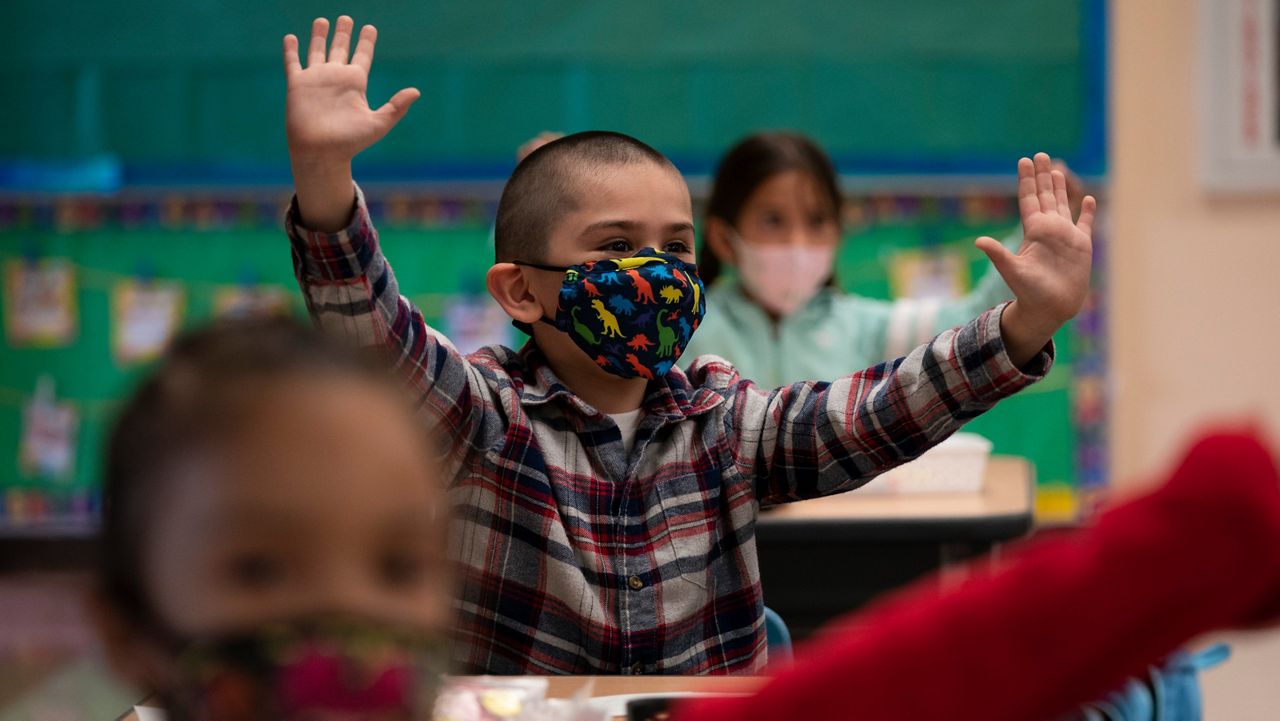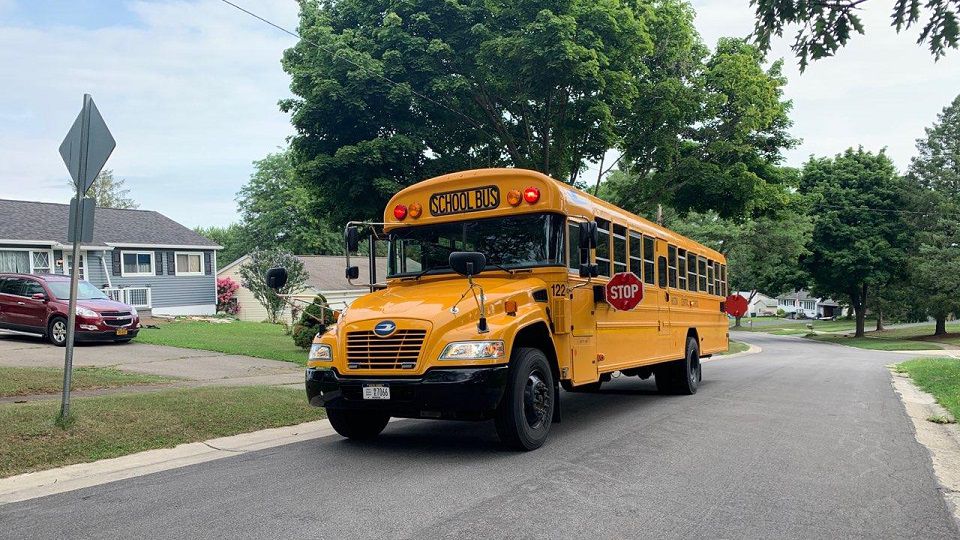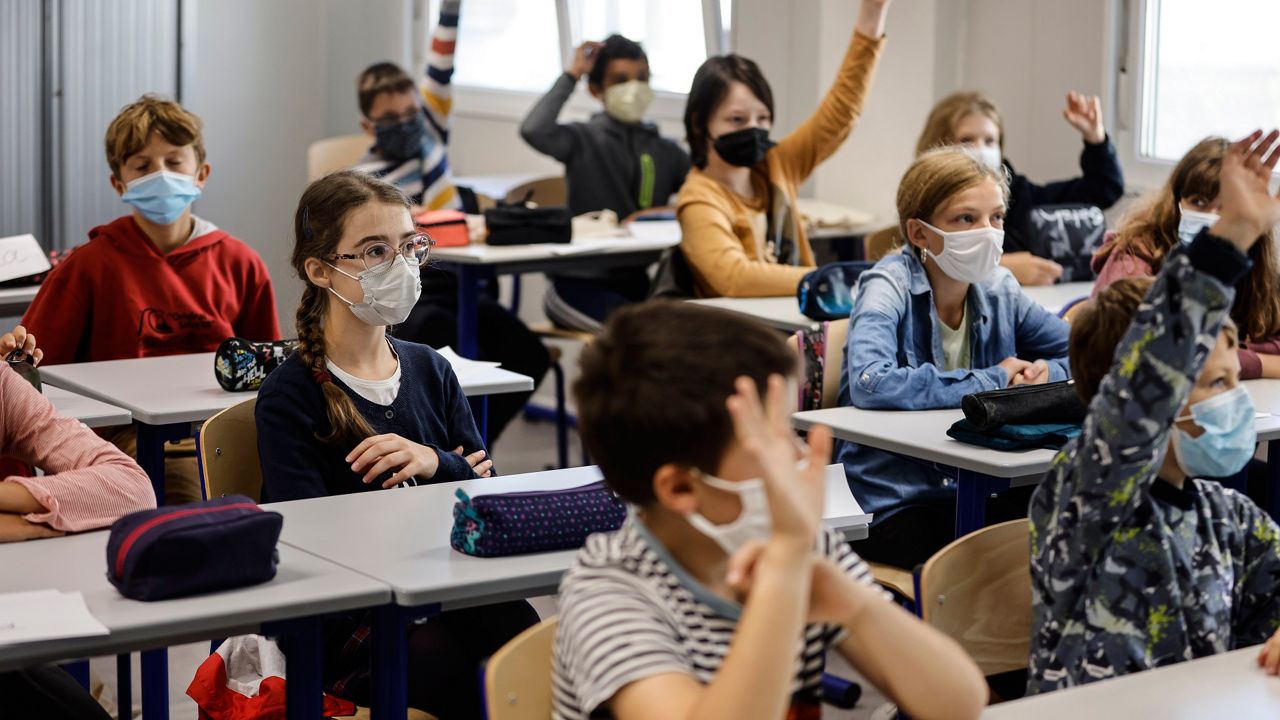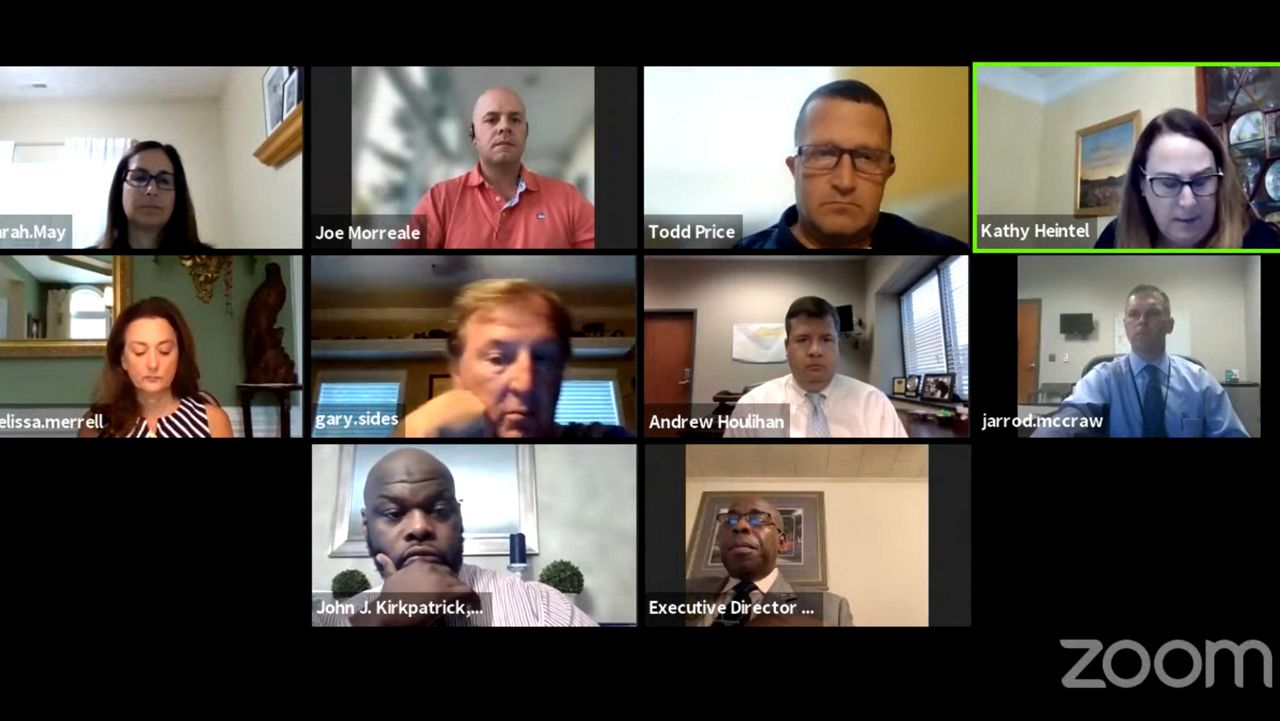CHAPEL HILL, N.C. — School bells will start ringing any day now. Long before a child steps foot in a classroom, a lot of work will go into making the environment safe against COVID-19.
The pandemic has heightened the importance of cleaning by custodial crews in school systems
Cleaning crews must prioritize high-touch areas where students, teachers and other staff will be throughout a school day
NCDHHS based its 'Strong Schools NC Public Health Toolkit' on CDC recommendations, but schools can add on to those protocols
The onset of the pandemic has heightened the importance of cleaning and disinfection by custodial crews in school systems throughout North Carolina.
High-touch surfaces (the CDC list includes: pens, counters, shopping carts, tables, doorknobs, light switches, handles, stair rails, elevator buttons, desks, keyboards, phones, toilets, faucets, and sinks) are a focal point for janitors like Jon Altizer inside Estes Elementary School.
”I don't have the most glorious job in the world considering some of the stuff that I do but the people around here, just makes it better," Altizer said.
Praise aside, Altizer will tell anyone who asks if his work isn’t the most sought after in any workplace. He squirted cleaner in the boys' restroom to kill germs anywhere a child might touch.
Like an outlaw from a Western movie does at sundown, the lead custodian raised the bottle of Sanitex, an EPA approved disinfectant, from his side to spray urinals and toilets with a thick mist of protection. Wiping down these stalls is part of the job for him because any version of the novel coronavirus is enemy number one.
It’s dirty work guys like Altizer don’t mind doing.
“Well, the cleaning is basically the same. It’s just done more often,” Altizer said.
Altizier’s been a janitor in the Chapel Hill-Carrboro City School District since 2013.
“For me here, I like the people I work with. I mean the job is great,” said Altizer.
His duties are needed more than ever.
“These areas have to be touched. Every couple of hours you have to go through and wipe them down," Altizer said.“These areas have to be touched. Every couple of hours you have to go through and wipe them down," Altizer said.
Someone has to get classrooms ready and keep hallways clean long before kids step foot through the door.
“What I do when I go into a room, I'll come in and I'll start on one side, then work my way around,” the master of the custodial arts said. He usually works in a circular motion when he cleans any classroom.
Knobs, storage handles, desktops, laptops, and other surfaces get the elbow grease three to four times a day. It’s time-consuming work and he says at any time, guidelines for janitors can change.
Waiting to learn what his new responsibilities are can be stressful.
“I guess for us sometimes it is communication and not knowing,” he said.
The ‘StrongSkillsNC Public Health Toolkit (K-12)’ created by the North Carolina Department of Health and Human services requires surfaces to be cleaned at least once a day. Based on what’s stated inside the toolkit, cleaning crews must prioritize high-touch areas where students, teachers and other staff will be throughout a school day.
If a COVID-19 case is confirmed in a child or educator, crews clean and disinfect the space or spaces an infected person occupied. If and when such an occasion occurs, Altizer uses a fogging machine to kill any traces of the viral contagion.
He demonstrated how it works. Altizer said, “Let the fog do its work.”
He does feel relief when his boss hands down new protocols—because he now has a clear set of directions.
“That was my most nerve-racking thing because you didn’t know—but everybody else out there is just like, ‘I am going through my life.' But here we have to be, as they say on the front lines, right here in the middle of it wiping stuff down so we don’t get sick.”
NCDHHS based its 'Strong Schools NC Public Health Toolkit' on recommendations given by health experts at the Centers for Disease Control and Prevention, but local school districts are free to issue their own health and safety protocols.










